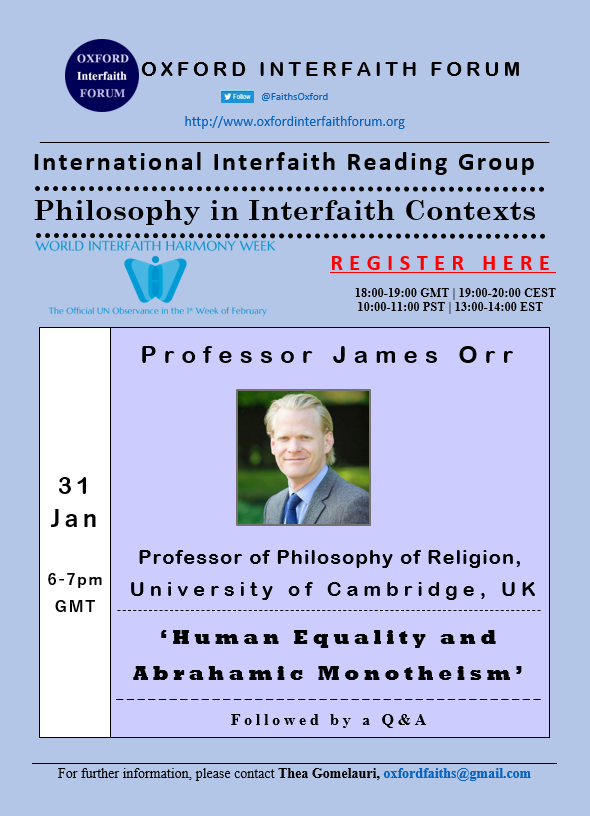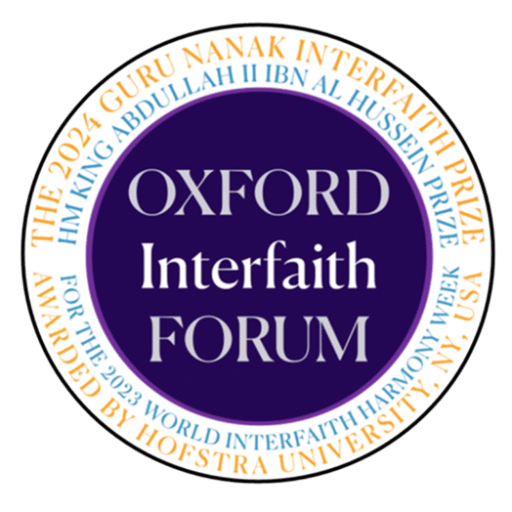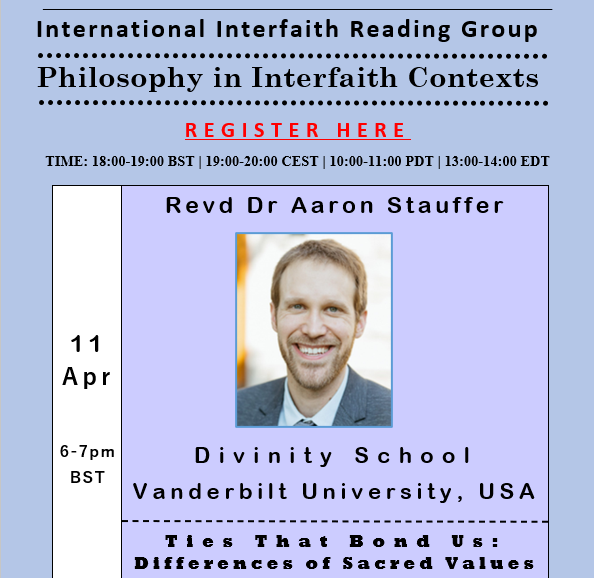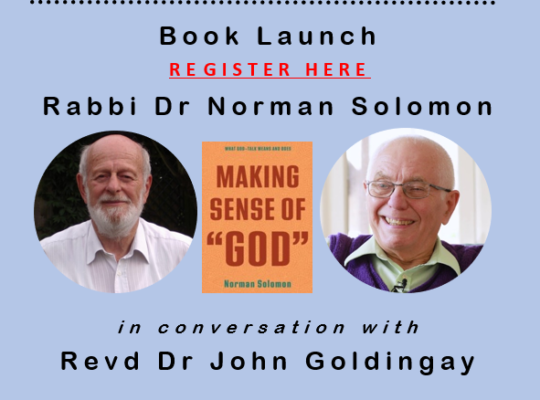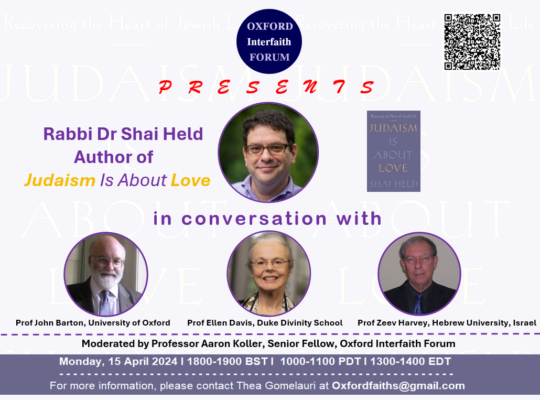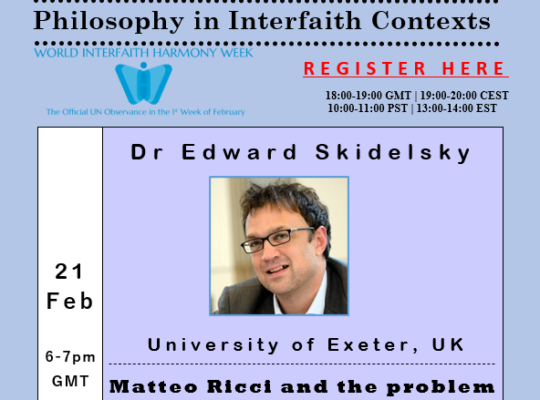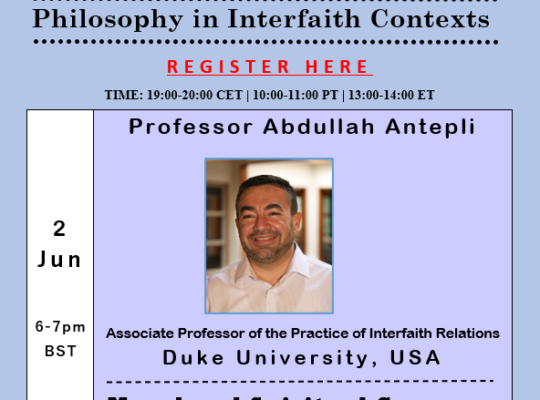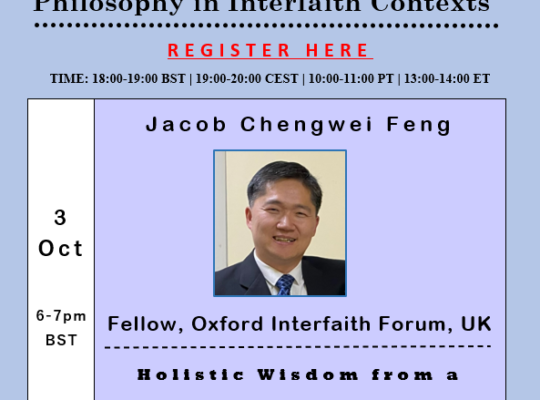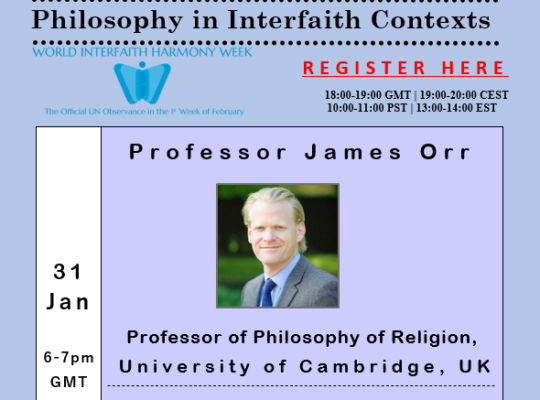11 April, 2024
We are deeply honoured to welcome Revd Dr Aaron Stauffer, Director of Online and Lifelong Learning, and Associate Director of Wendland-Cook Program in Religion and Justice at Vanderbilt Divinity School of the Vanderbilt University, USA, to lead a session of the Philosophy in Interfaith Contexts Reading Group.
Here are the details of this fascinating event.
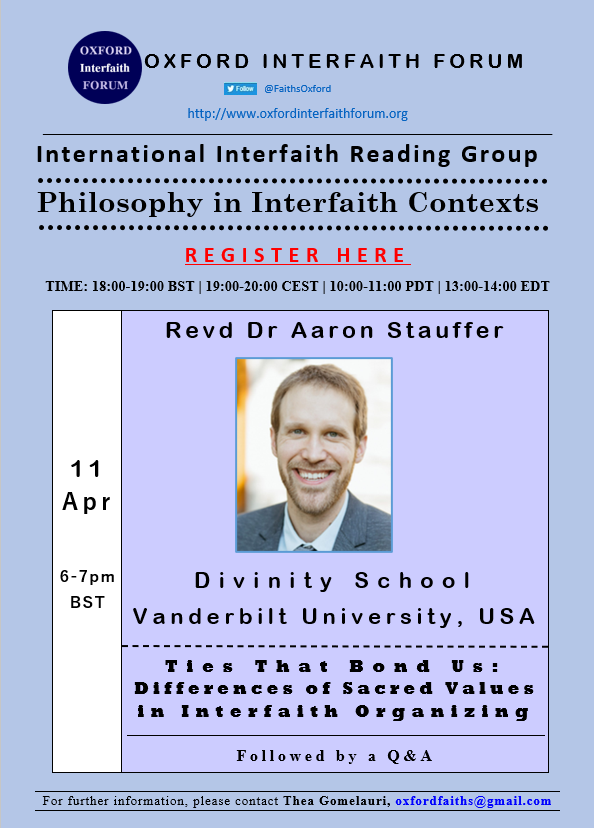
Topic: The Ties That Bond Us: Differences of Sacred Values in Interfaith Organizing
Abstract: Broad-based community organizing (BBCO) is perhaps the most widely used form of political participation supported by U.S American religious institutions today. As organizing groups become more religiously diverse, however, so do the conceptions of sacred value that ground organizing in the first place. In today’s political climate in the U.S. what we hold most dear, those sacred values such as human life, land, or natural resources may seem to only further entrench us in our enclaves and threaten the solidarity of any constituency. Rather than focusing on the potential for solidarity in sacred values, organizing networks have marginalized them, doubling down on a strategy of building group solidarity through common issues rather than diverse religious ethics. This lecture explores a different strategy. Dr. Stauffer argues that people organize to protect and fight for what they hold most dear and by centering sacred values organizing networks can build deeper solidarity. Differences of sacred values, rather than aspects of political and religious life to be eschewed, offer a way to build deeper relational power for the work of religious, political, and economic democracy.
Speaker’s Biography: Revd Dr Aaron Stauffer is the Director of Online Learning and the Wendland-Cook Program in Religion and Justice at Vanderbilt Divinity School. He earned his PhD in social ethics at Union Theological Seminary in the City of New York. His scholarly and organizing work lies at the intersection of the academy, the Christian church, and community organizing. An ordained Minister of Word and Sacrament in the Presbyterian Church USA, Aaron most recently was the Executive Director and then Special Advisor of Religions for Peace USA, where he helped launch a national anti-Islamophobia program based in the southeast, along with organizing national senior religious leaders on issues of common concern such as mass incarceration, immigration, and climate change. Aaron has been an active participant in international ecumenical and interfaith organizations, such as the World Council of Reformed Churches and the World Council of Churches.
His book, Listening to the Spirit: The Radical Social Gospel, Sacred Value, and Broad-based Community Organizing, was recently published by Oxford University Press (see below). His work has appeared in Tikkun, Sojourners, The Other Journal, Political Theology, and CrossCurrents, as well as other scholarly and popular publications.
Chair: Professor Syed Atif Rizwan, Senior Fellow at the Oxford Interfaith Forum, UK, and Assistant Professor of Islamic and Interreligious Studies, Director of The Catholic-Muslim Studies Program at the Catholic Theological Union, USA.
Date: 11 April, 2024
Time: 18:00-19:00 BST | 19:00-20:00 CEST | 10:00-11:00 PST | 13:00-14:00 EST
Venue: online
If you would like to join the Philosophy in Interfaith Contexts Reading Group, please sign up here.
Related Sessions:
- Qohelet: Search for a Life Worth Living

- Friends of the Devil: Rebellion and the Construction of Early Islamic Caliphal Sovereignty
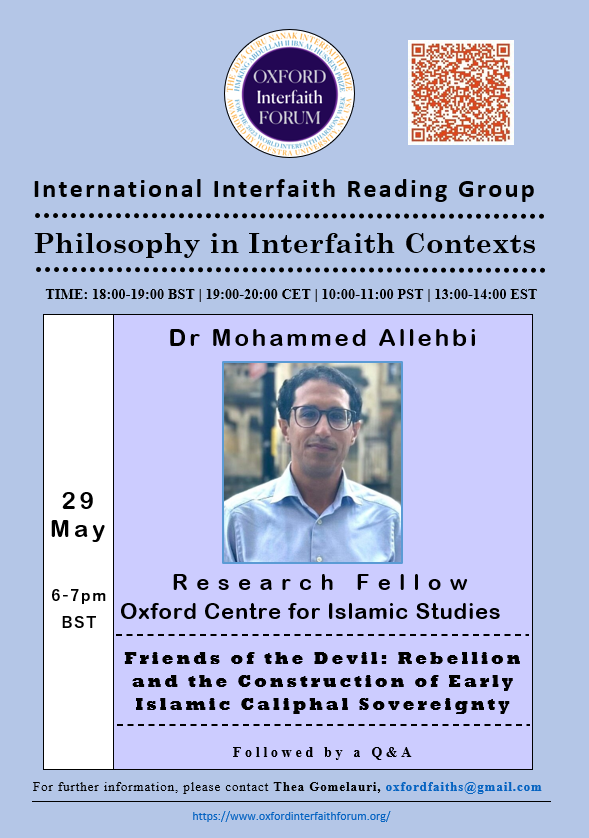
- God, Evil, and Suffering in Islam
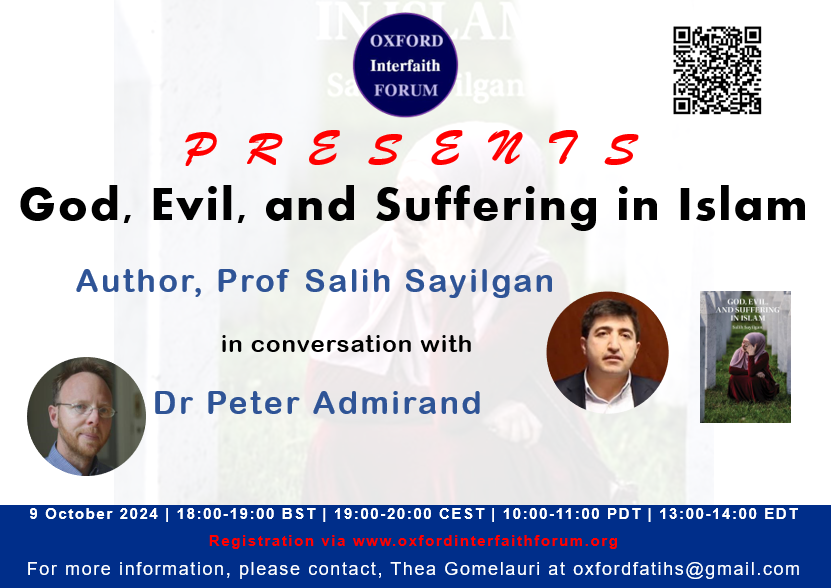
- Judaism Is about Love
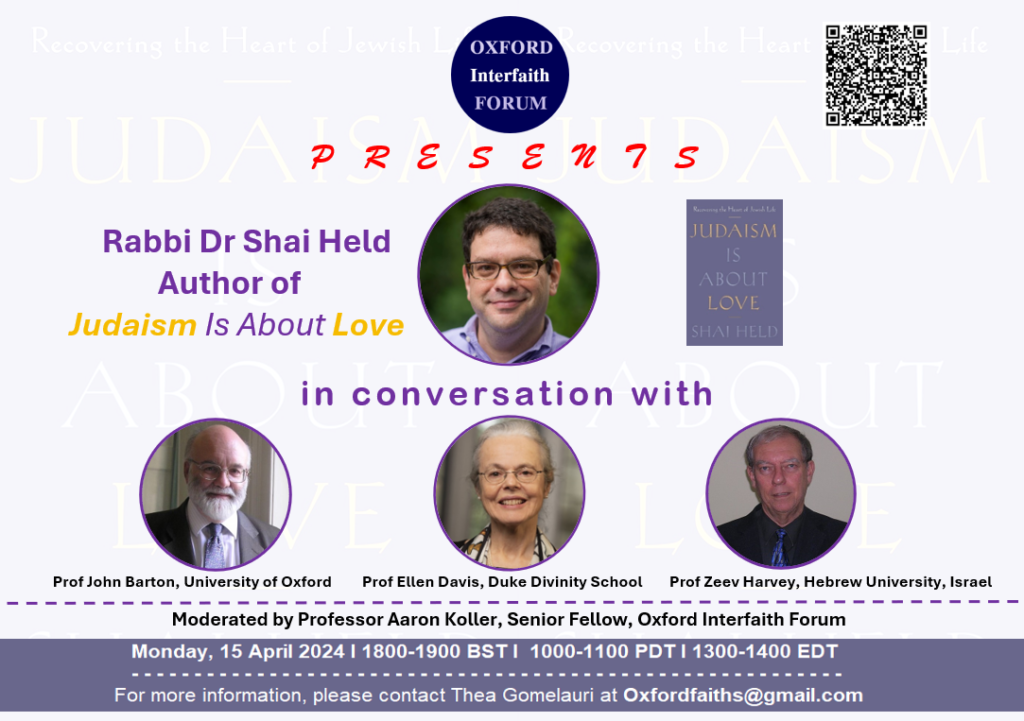
- The Ties That Bond Us: Differences of Sacred Values in Interfaith Organizing

- When Salafi Muslims Meet Evangelical Christians: A Hopeful Dispatch from the United States
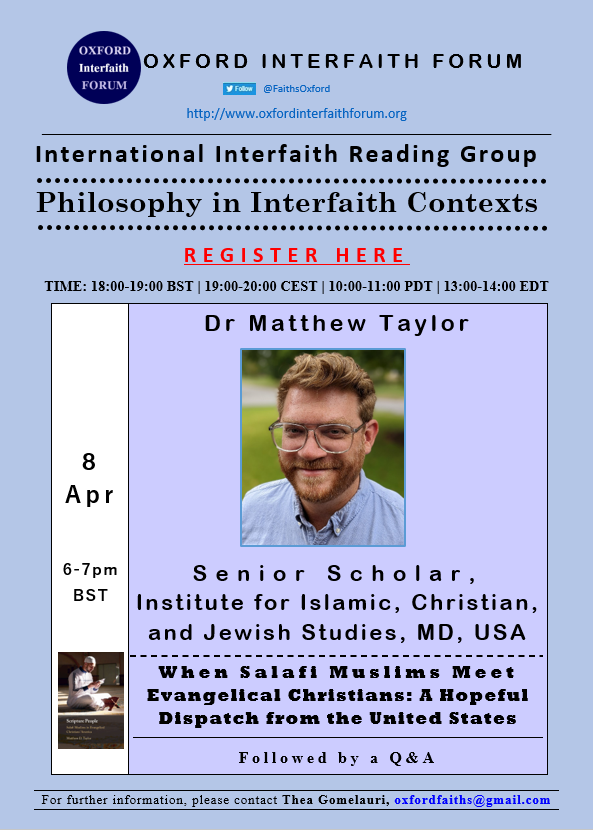
- The Varieties of Atheism: Connecting Religion and Its Critics
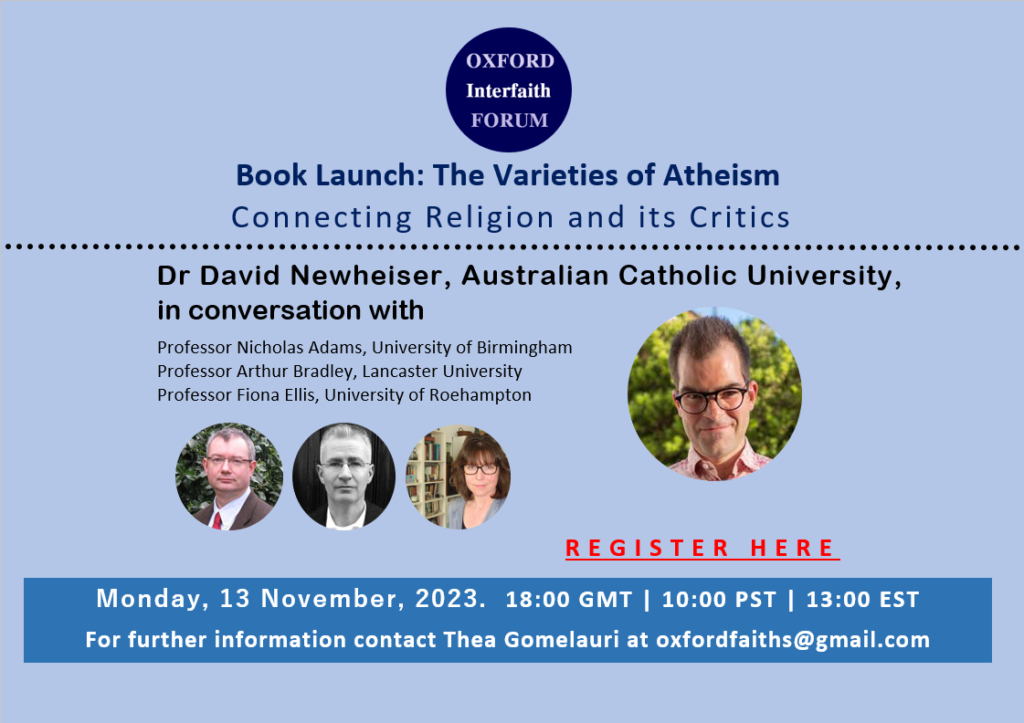
- Making Sense of “GOD”: What God-Talk Means and Does
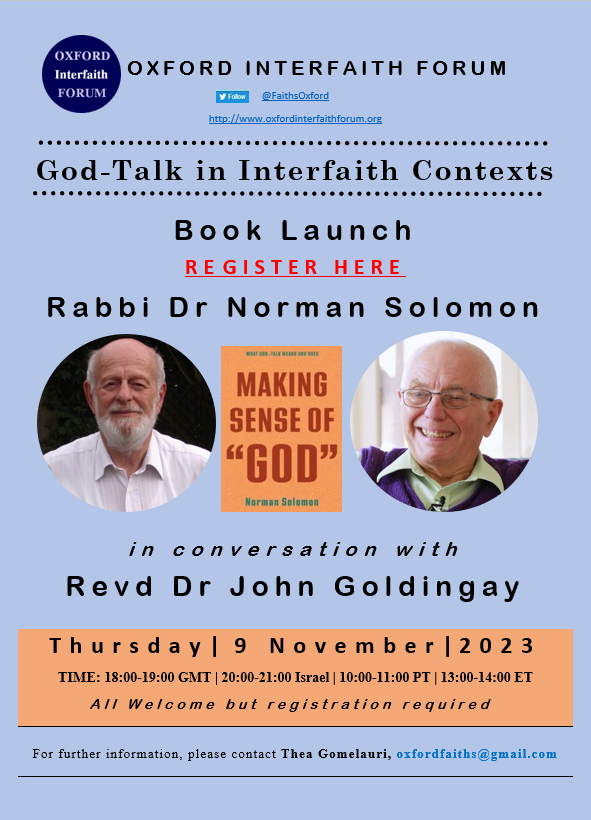
- A Jewish Philosophical Approach to Interfaith Relations: Re-reading Genesis According to Rabbi Jonathan Sacks
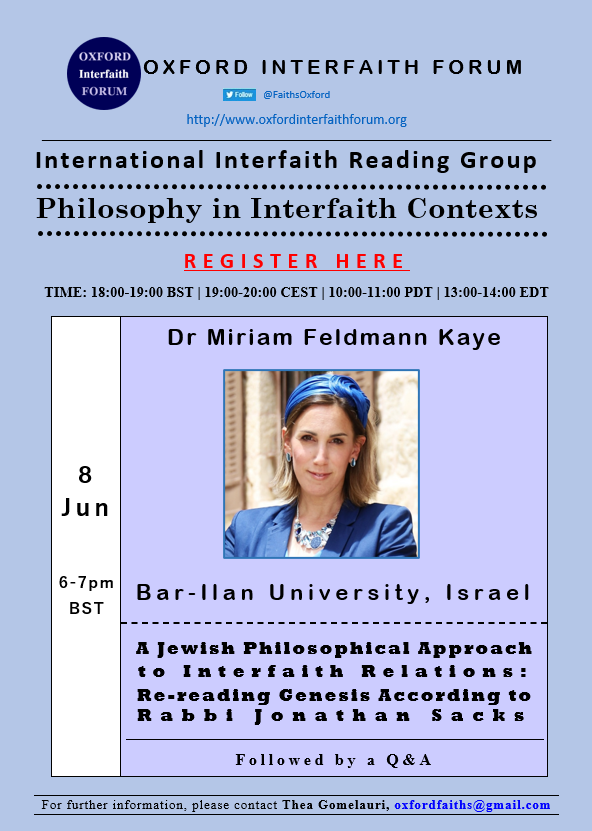
- Doing Comparative Theology Through a Decolonial Lens
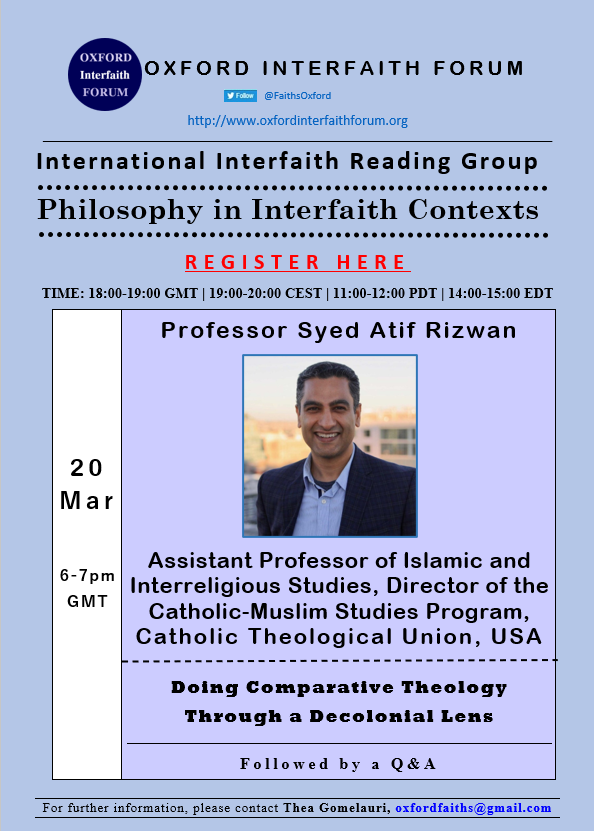
- Can Aristotle’s Ideas on Akrasia Shed Light on the Account of Original Sin in Gen 3:1-6?
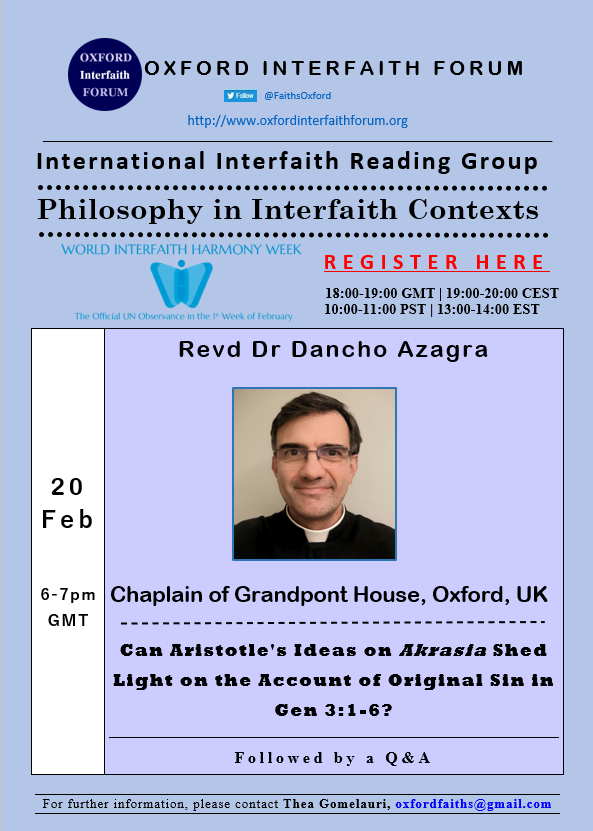
- Development in Catholic Teaching about and Relations with Jews since World War II
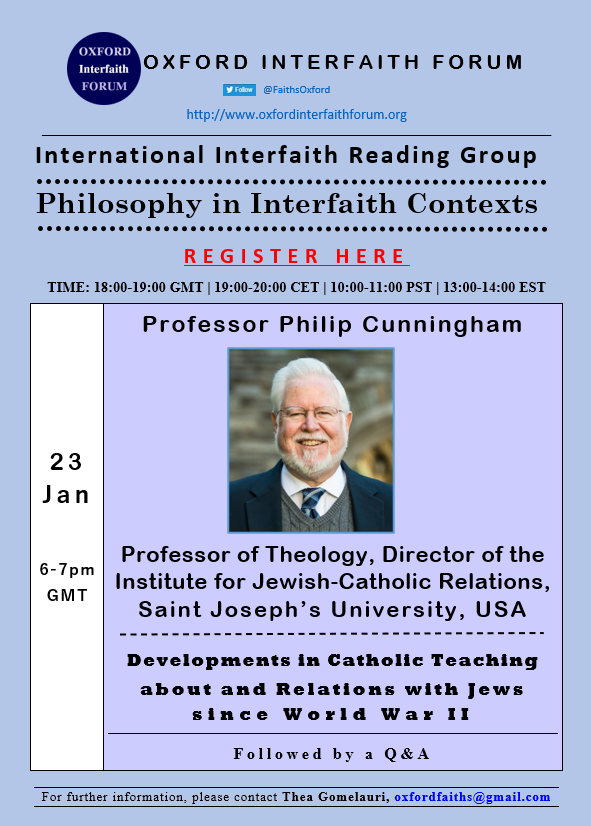
- How Christians Can Learn from the Devotional Poetry of Hindu South India
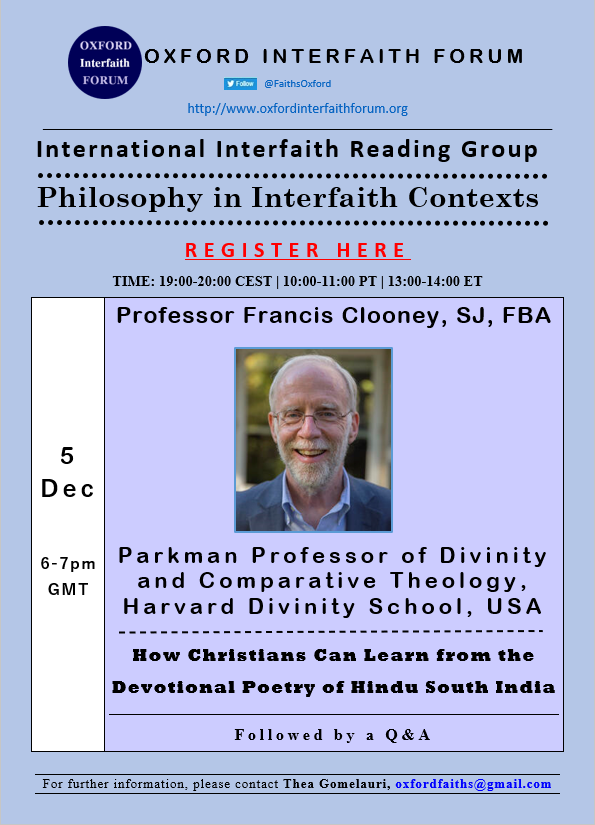
- Historical Suffering and Agency: Alternative Conceptions of Power in the Jewish Philosophical Thought of Hermann Cohen
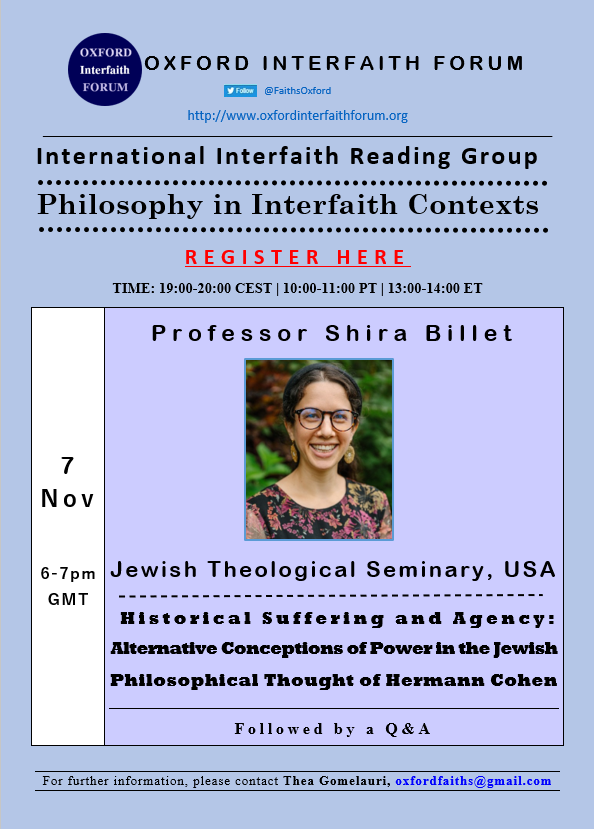
- Holistic Wisdom from a Chinese Perspective
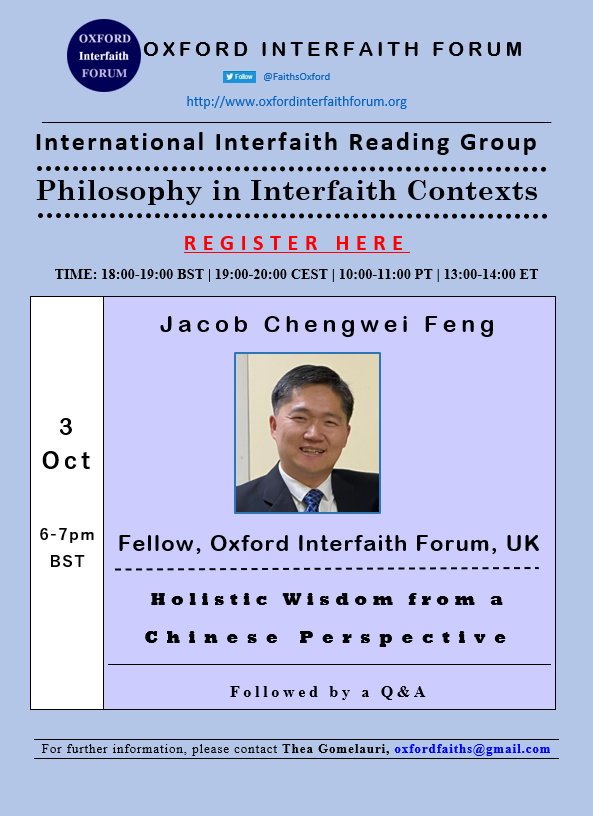
- An Islamic Philosophy of Plurality: Shah Waliullah of Delhi (1703-62) on the Unity and Diversity of Humanity
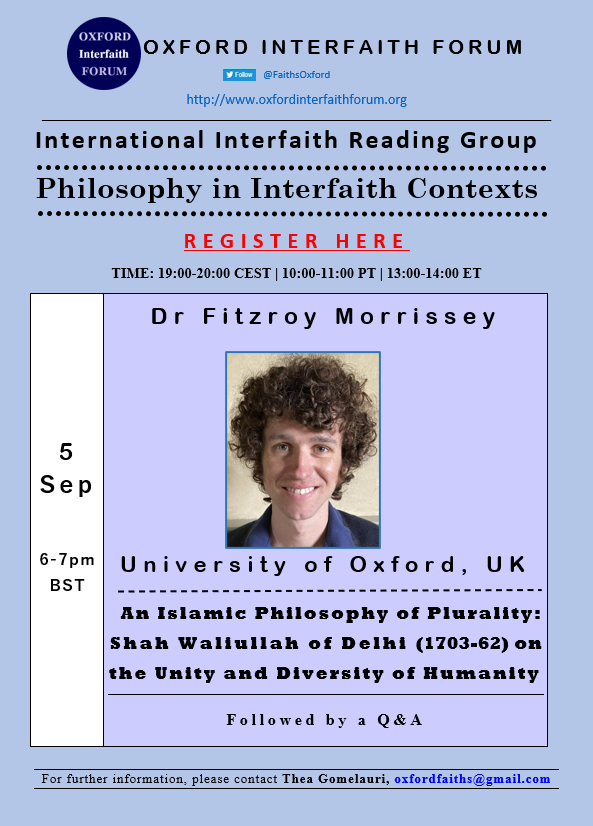
- Reaching beyond Metaphysics: God of Love, God beyond Being in Two Traditions
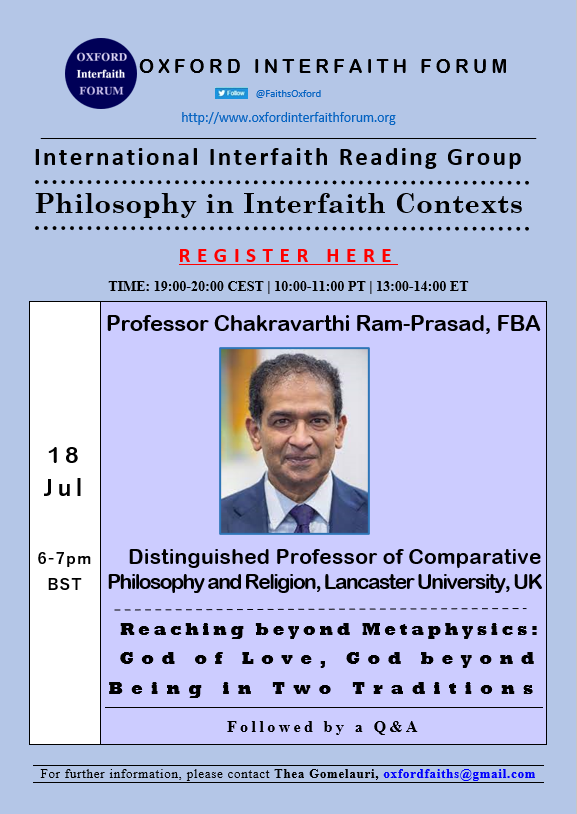
- Moral and Spiritual Courage: A Muslim Perspective
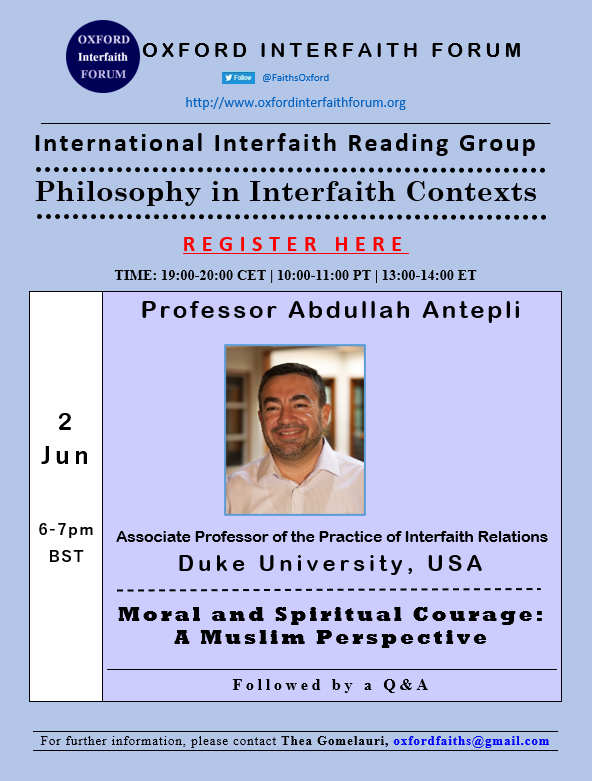
- A Religious Crucible: Elia Benamozegh (1823-1900), Jewish Universalism and Interreligious Encounters
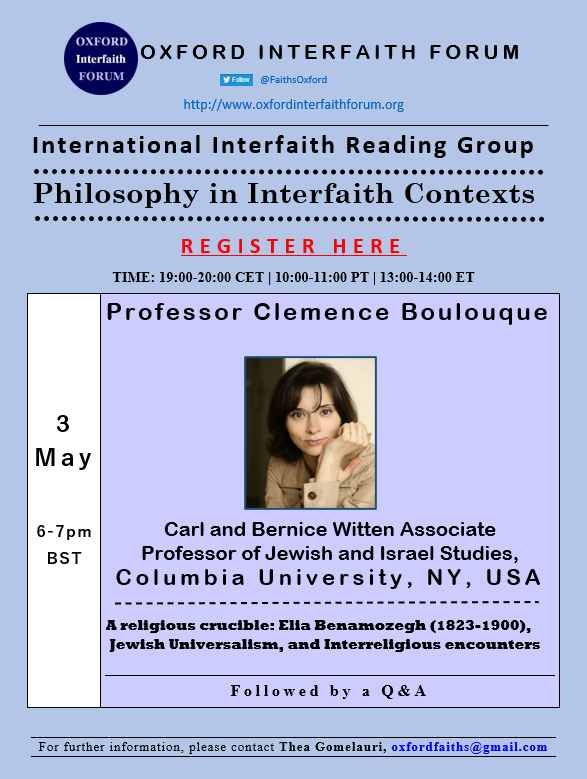
- Holy Envy: Faith, Truth and Interfaith Understanding
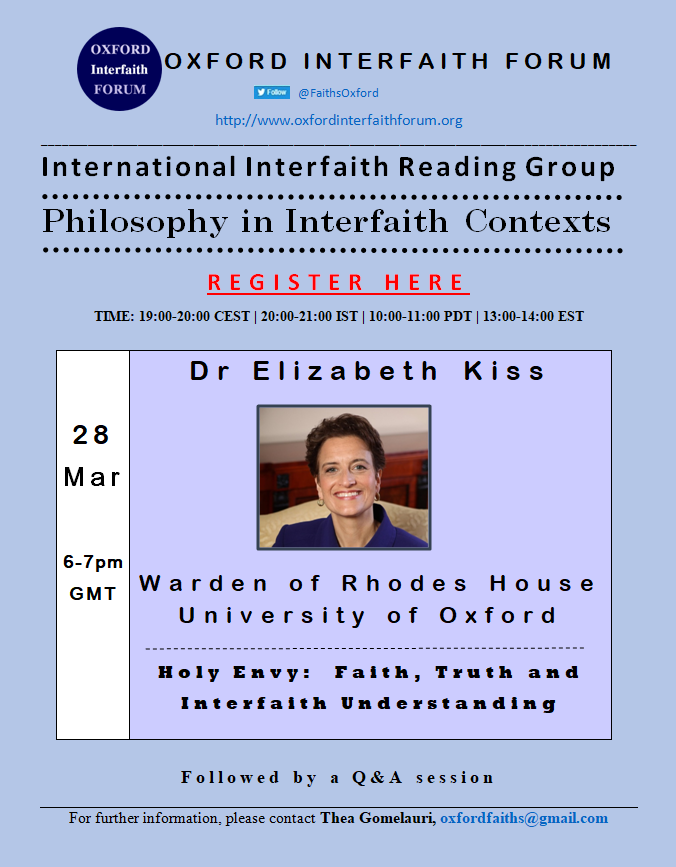
- Matteo Ricci and the Problem of Religious Translation
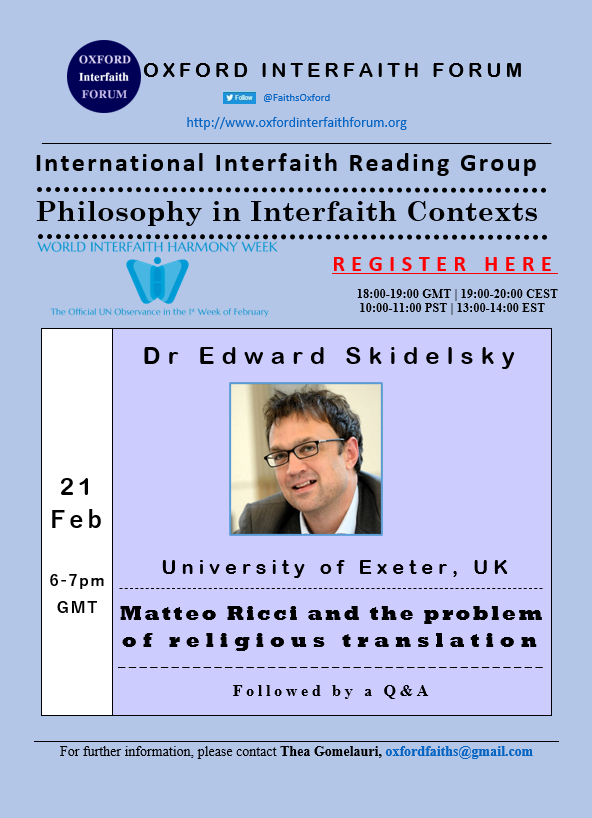
- Human Equality and Abrahamic Monotheism
